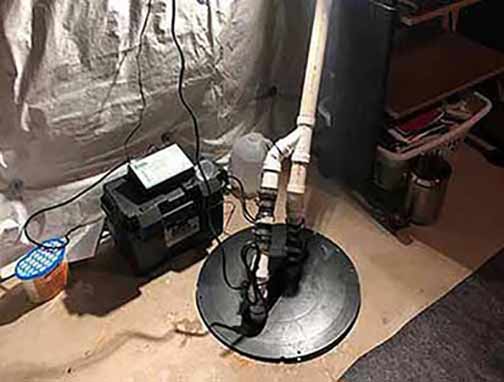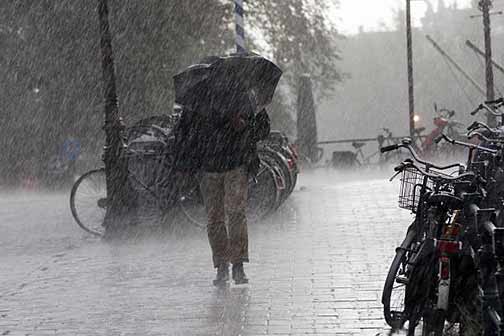With climate change causing extreme weather events to occur more frequently, it is crucial to be prepared for heavy rainfall and flooding. One area of your home that requires special attention during these times is the plumbing system. Heavy flooding can put enormous stress on your plumbing system, leading to potential damage and costly repairs. Here we will discuss how to optimize your plumbing system to minimize the impact of heavy flooding.
The Importance of a Well-Maintained Plumbing System
Before we delve into specific steps to optimize your plumbing system, let’s understand why it is essential to keep it well maintained, especially in preparation for heavy rainfall and flooding.
Your plumbing system is responsible for supplying clean water to your home and disposing of wastewater. A properly functioning plumbing system ensures that water flows efficiently, preventing leaks, blockages, and other types of damage. During heavy flooding, your plumbing system is at a higher risk of becoming overwhelmed, which can lead to significant problems if not addressed promptly.
A poorly maintained plumbing system can result in:
- Water contamination
- Structural damage to your home
- Mold growth
- Increased risk of electrical hazards
- Expensive repairs
By taking the time to optimize your plumbing system, you can mitigate these risks and ensure the safety and functionality of your home, even in the face of heavy flooding.
Assessing Your Plumbing System’s Vulnerabilities
Before implementing any changes or improvements, it’s important to assess your plumbing system’s vulnerabilities. By understanding its weak points, you can focus your efforts on the areas that need the most attention.
Here are some common vulnerabilities to consider:
- Basement flooding: Basements are particularly susceptible to flooding. If your plumbing system is located in the basement, it is crucial to take extra precautions.
- Old or deteriorating pipes: Aging pipes are more likely to develop leaks or bursts, especially under high water pressure.
- Inadequate drainage: Insufficient drainage or clogged gutters can lead to water buildup, putting extra strain on your plumbing system.
- Backflow: Heavy flooding can lead to sewage backups, contaminating your home’s water supply and causing health hazards.
Once you have identified the vulnerabilities of your plumbing system, you can proceed with the necessary optimizations.

Consider installing a sump pump in your basement or crawl space to protect your home during heavy rainfall.
Optimizing Your Plumbing System for Heavy Flooding
1. Install a Sump Pump
A sump pump is a crucial component of any flood-prone home. It is designed to remove excess water from your basement, preventing flooding and water damage. Consider installing a sump pump in your basement or crawl space to protect your home during heavy rainfall.
2. Check and Repair Leaks
Even minor leaks can become significant issues during heavy flooding. Inspect your plumbing system for any leaks and repair them promptly. Pay extra attention to joints, pipes, and faucets, as these are common areas for leaks to develop.
3. Elevate Valuables
If you have a basement that is prone to flooding, it is essential to elevate valuable items and appliances, such as washing machines, water heaters, and electrical panels. By keeping these items above flood level, you can minimize potential damage.
4. Clear and Maintain Drains
Clear, well maintained drains are crucial for effective water flow during heavy rainfall. Regularly inspect your drains and remove any debris or blockages. Additionally, consider installing drain covers or screens to prevent larger objects from clogging the drains.
5. Install a Backflow Prevention Device
During heavy flooding, there is a risk of sewage backing up into your home’s water supply. Installing a backflow prevention device can help safeguard against this, ensuring that contaminated water does not contaminate your clean water supply.
6. Keep Gutters and Downspouts Clean
Gutters and downspouts play a crucial role in directing water away from your home’s foundation. Ensure that they are clear of debris and properly connected. Regularly clean your gutters to prevent clogs and water buildup.
7. Create Proper Grading Around Your Home
Proper grading around your home can help prevent water from pooling near the foundation. Ensure that the ground slopes away from the house, directing water away and reducing the risk of flooding.
8. Establish an Emergency Plan
Despite all precautionary measures, there is still a chance that heavy flooding can cause damage to your plumbing system. Having an emergency plan in place can help you respond quickly and minimize the extent of the damage. Discuss the plan with your family members and ensure everyone knows how to shut off the main water supply and electricity if necessary.
Summing it Up
Preparing your plumbing system for heavy flooding is a crucial step in protecting your home and ensuring the safety of your family. By evaluating the vulnerabilities of your plumbing system and implementing the necessary optimizations, you can minimize the impact of heavy rainfall and mitigate potential damages. Remember to consult with professionals if needed and stay vigilant during extreme weather events. By taking proactive measures, you can face heavy flooding with confidence and peace of mind.
